It's no secret that dogs are some of the most beloved animals on Earth.
After living alongside humans for over 30,000 years, dogs have proven to be invaluable companions — so much so that they've evolved to have similar human behaviors and expressions.
Through the ages, dogs, and humans have learned many things from one another. In fact, we have a bond so strong that dogs have a near-psychic ability to predict our future and well-being.
Now, neuro-imaging studies done through MRI scans are revealing so much more about how dogs' brains function, and about what we truly mean to them.
Researchers discovered that aside from being able to learn words and commands, dogs can profoundly respond to emotional and stressful situations in the same manner that we can.
Scroll further to see the inner workings of your dog's brain, and let us know what your thoughts are in the comments below!
[H/T: Ochen, National Geographic]
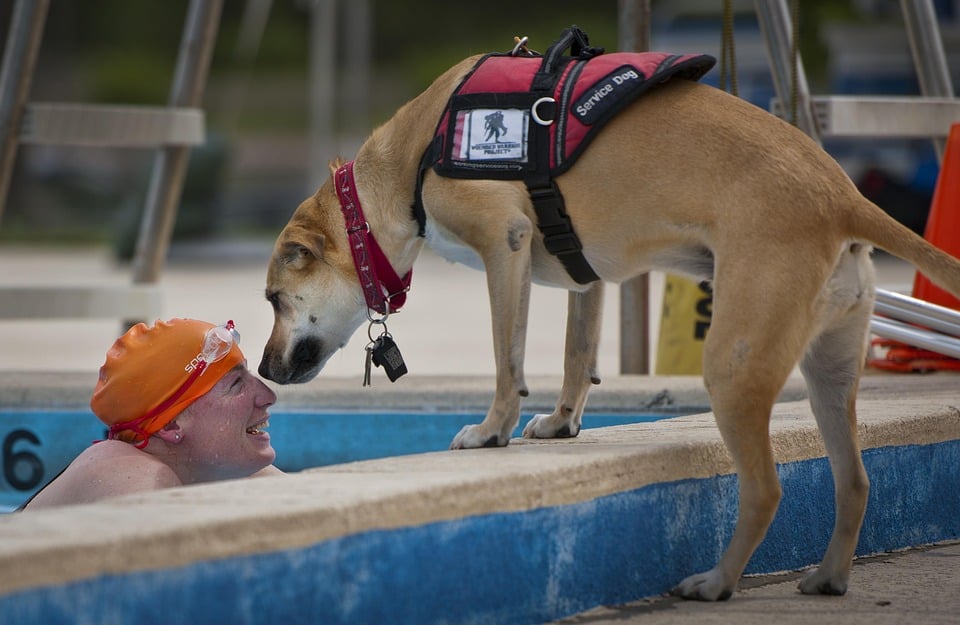
For ages, humans have had a particularly meaningful and intuitive bond with dogs.
But recently, and for the first time ever, we have actually gone into the dog’s brain to see how it functions, and to better understand how it is wired when it comes to our relationship with them.
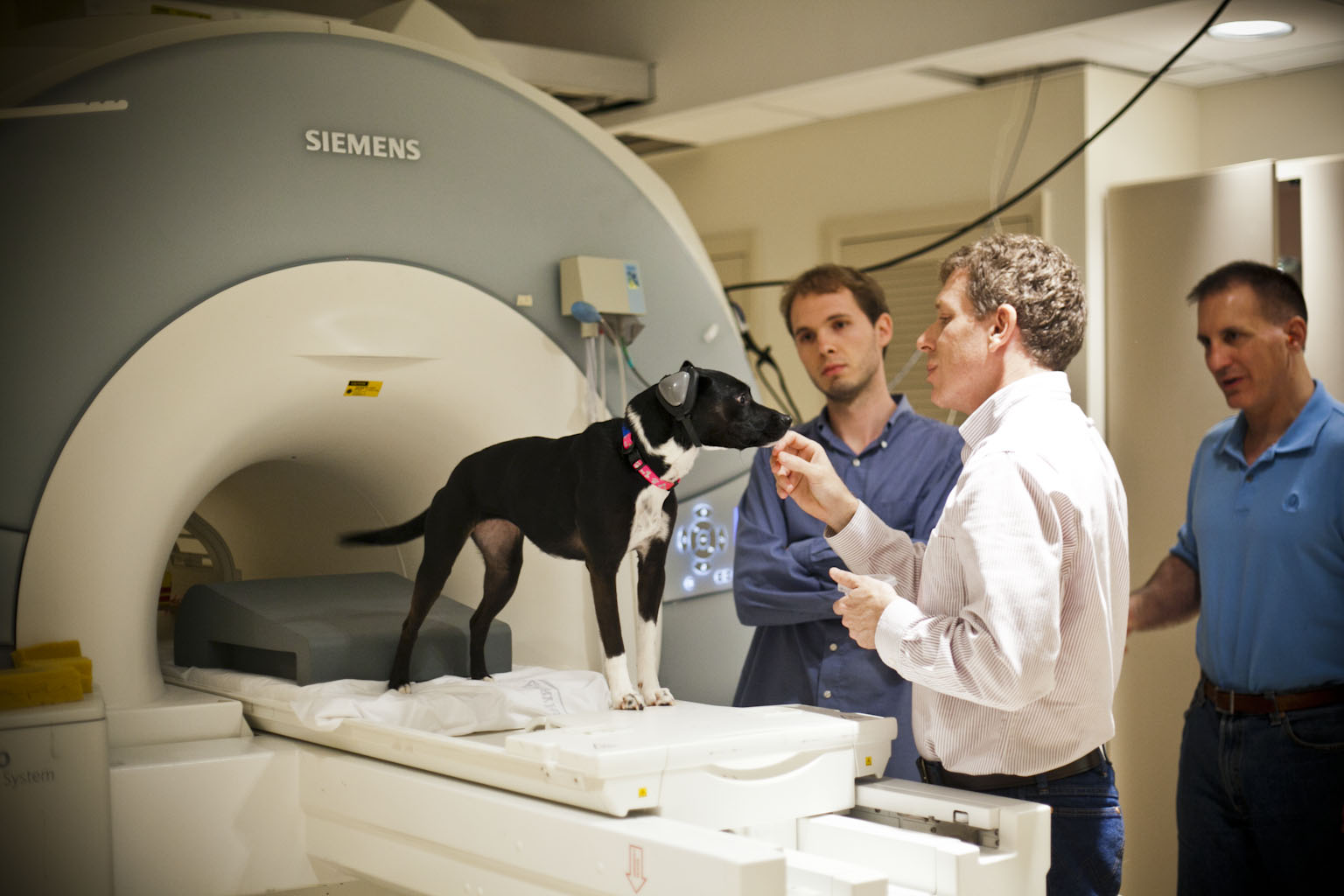
Animal cognition scientists at both Emory University and Eotvos Lorand University in Budapest, Hungary, have used neuro-imaging technology to study responses in the canine brain.
The resulting evidence? Dogs not only love us conditionally, but they genuinely do see us as their own family!
In fact, it appears that dogs tend to rely on us for protection, affection, and devotion — more than they do on their own kind.
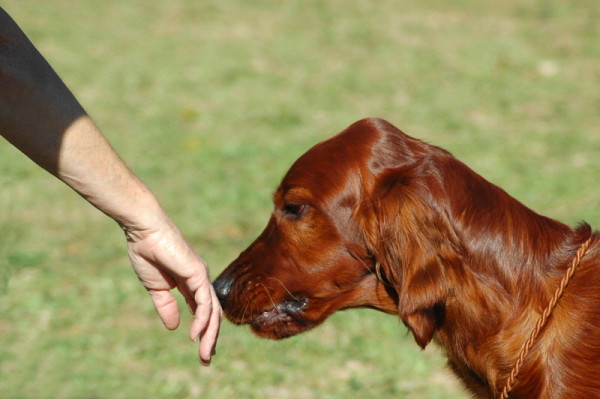
To conduct the research, scientists safely placed the dogs in an MRI machine, and tested their responses to the smell of both people and other dogs.
This is especially important, because dogs process thoughts, and insights most notably through their sense of smell.
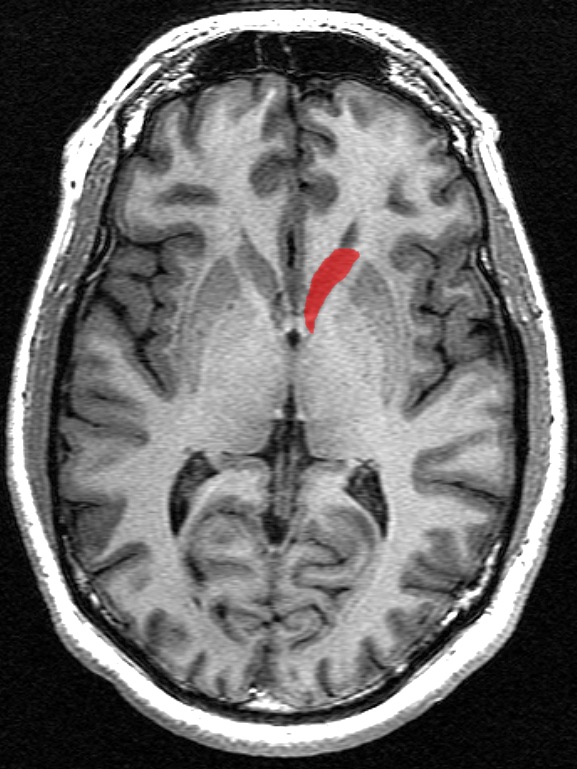
Perhaps not surprisingly, they found that the “reward center” in the dog’s brain naturally sprung into action after getting a whiff of its owner’s scent.
In fact, of every smell that they could have possibly picked up in the room, they “prioritized" that of their owner.
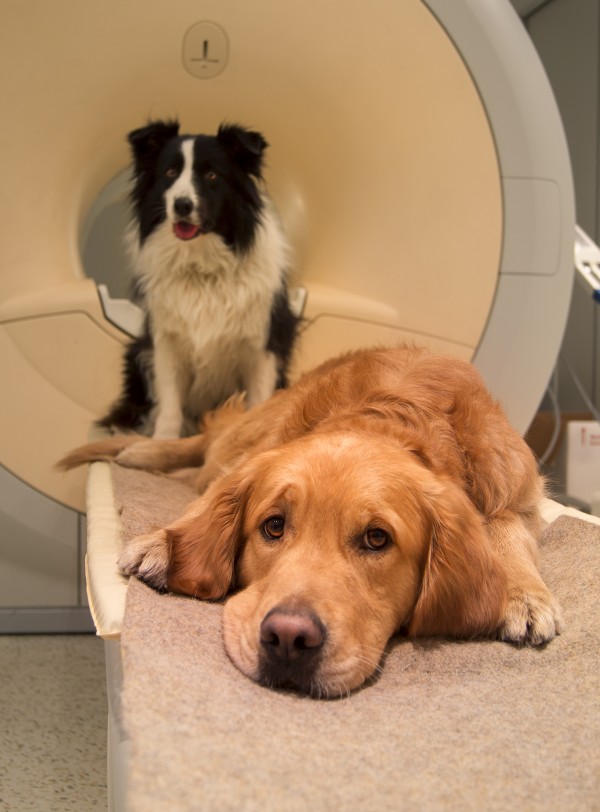
Researchers concluded that dogs were in fact not trained to feel an affinity toward humans — but rather, that they instinctively look to us for emotional support.
According to the study's findings, a dog's relationship with their owner is similar to one that babies have with their parents.
For example, when dogs are in fear, they look for their owners, just as little kids run to their parents when they are nervous.
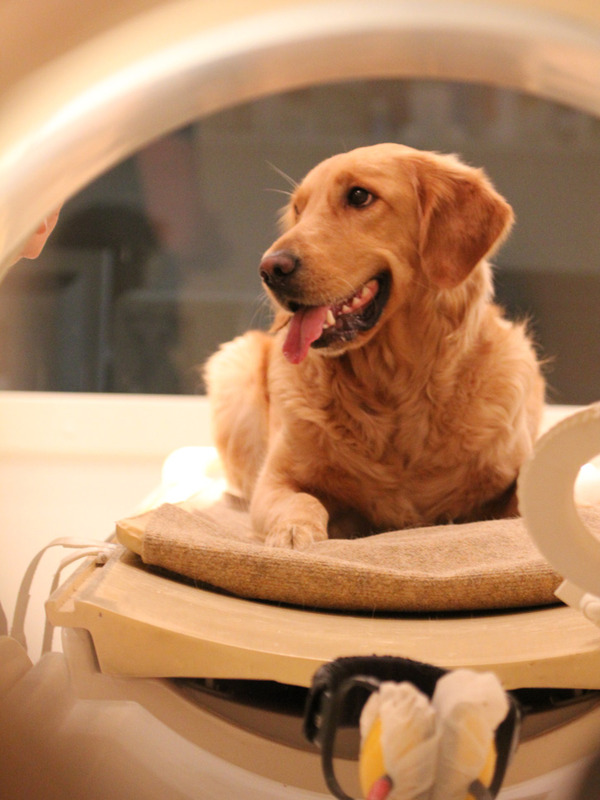
Dogs are the only domesticated animals — and, in fact, the only non-primates — to outwardly put their trust in humans.
Researchers found that dogs are among the few animals in the world that look people directly in the eyes.
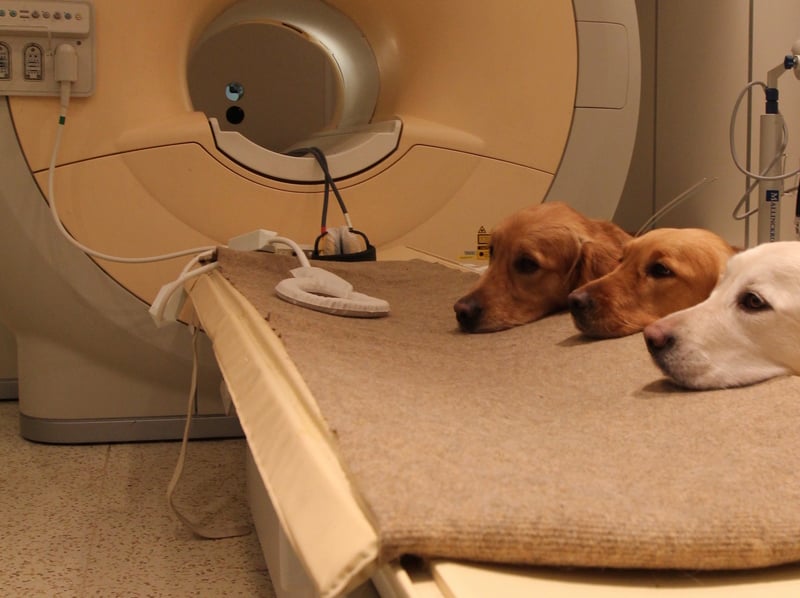
Because humans and dogs share such a close bond, scientists have studied how similarly they respond to stressful and emotional situations.
Àdám Miklósi, head of ethology at the university in Budapest and founder of the Family Dog Project, reveals that dogs and humans actually share many medical and psychological conditions.
“A lot of [dogs] share their life with people, and they are exposed to many of the same stress factors as humans, including polluted air or manufactured food,” he told National Geographic.
This means that they are completely capable of being medically treated for the same conditions.
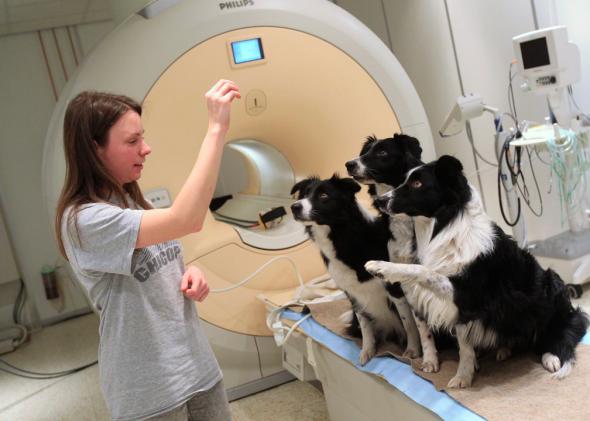
This also means that dogs and humans show striking similarities in the way they process the same stimuli.
In particular, they could have the same unique responses to emotional vocal sounds.
Sounds that are “happy” activate the auditory cortex in both humans and dogs, implying that dogs can intelligently make out the communication system we use.
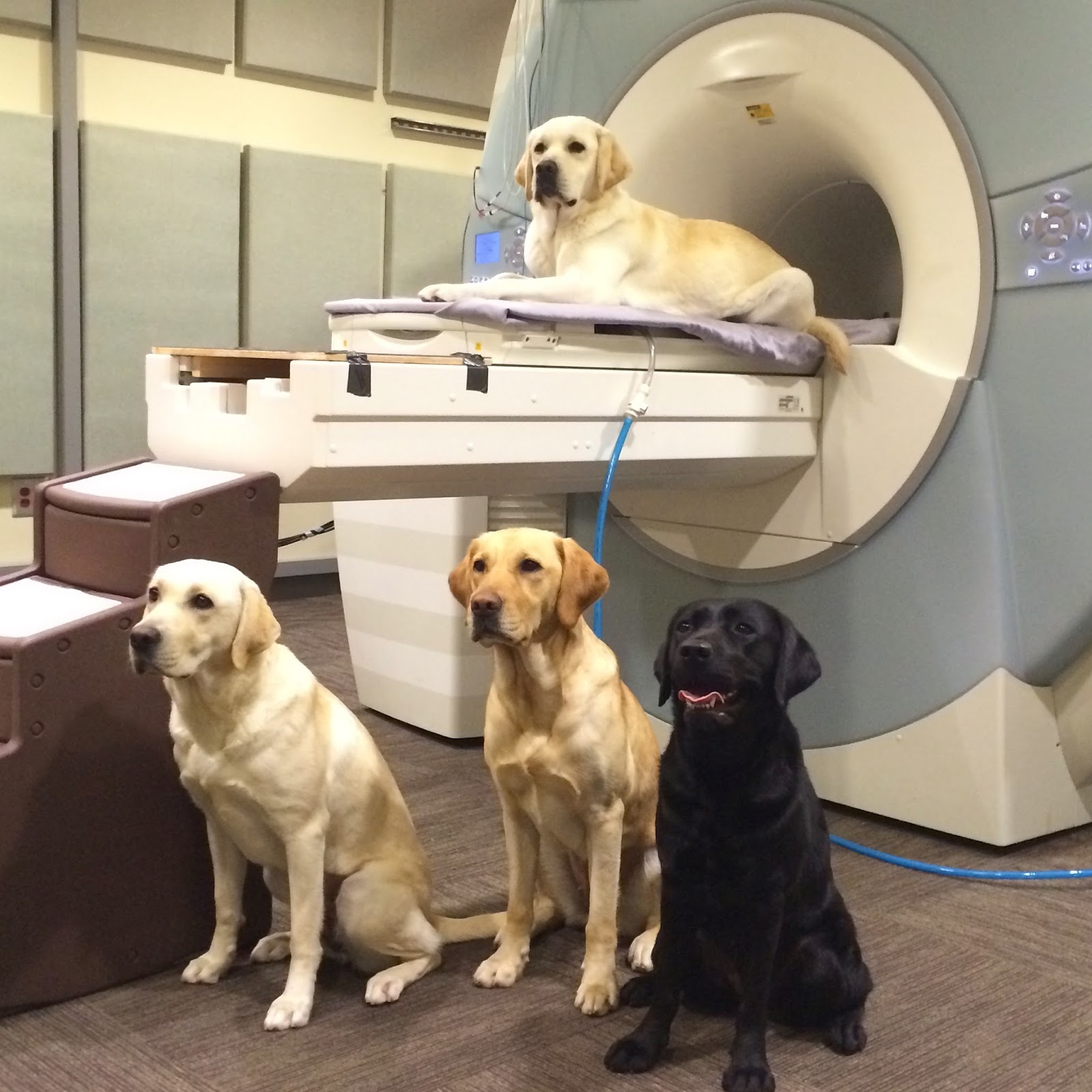
And this is truly groundbreaking, because as far as we know, language is a uniquely human trait.
But thanks to the research shown through the MRI scans, we now can see that dogs are among the most elite group of animals that have special cognitive skills.
Not only can they identify distinct human vocal commands, they also appear to understand words for objects and actions, verbs, and different names.
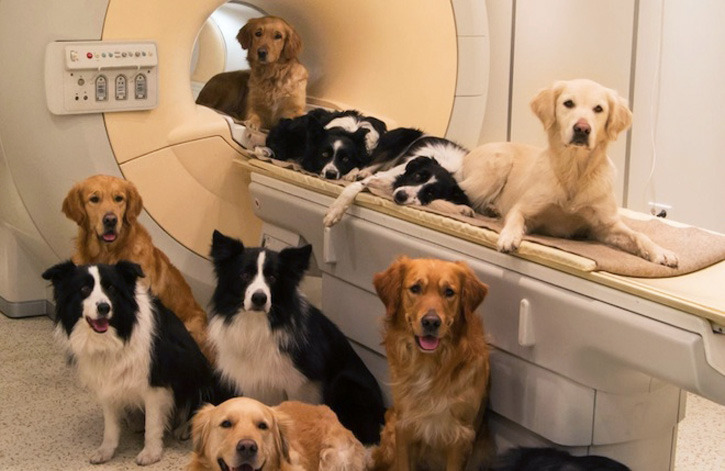
Thanks to science, we now have hard proof that dogs share a strong physical, mental, and emotional link with human beings — even though we are two completely different species!
Do you and your dog communicate in a special way?




